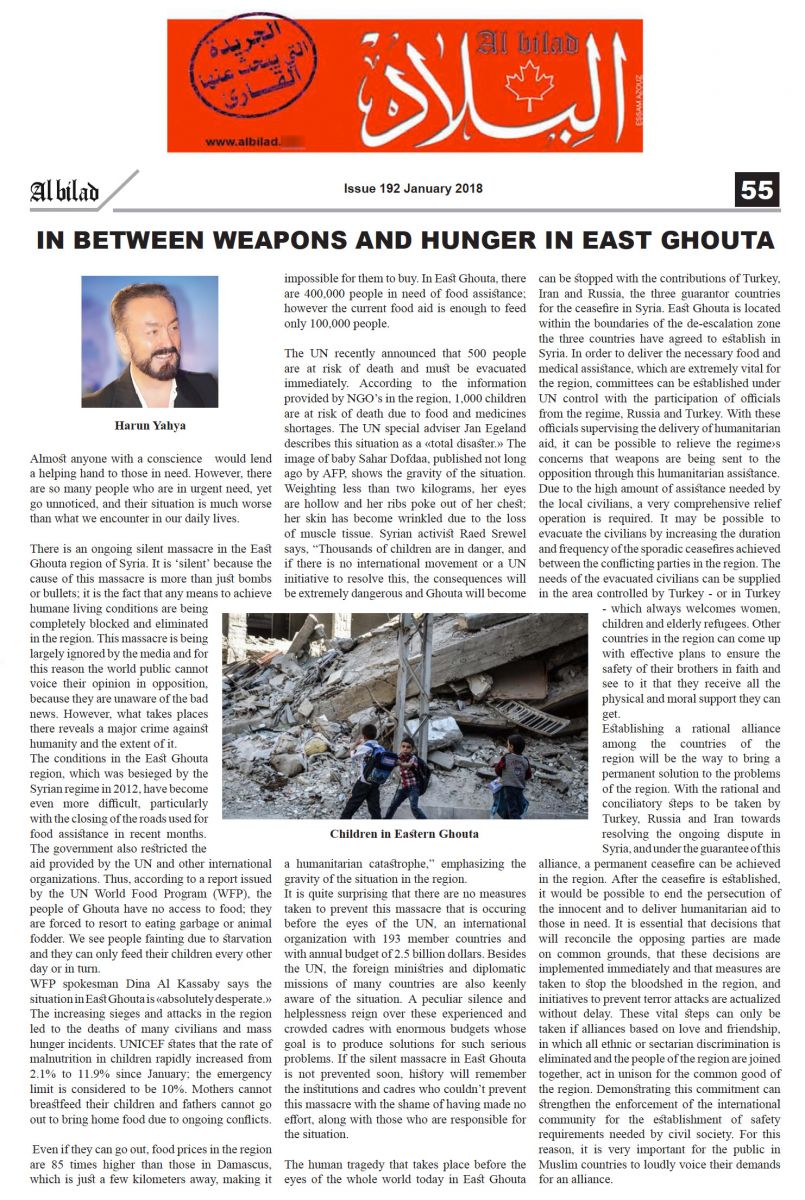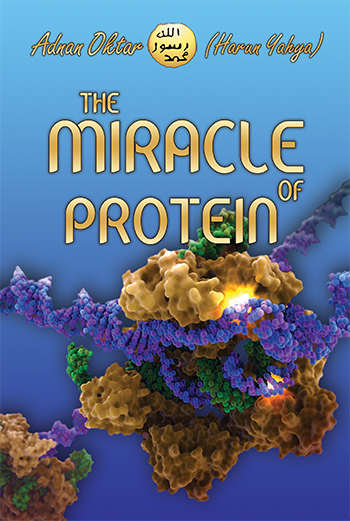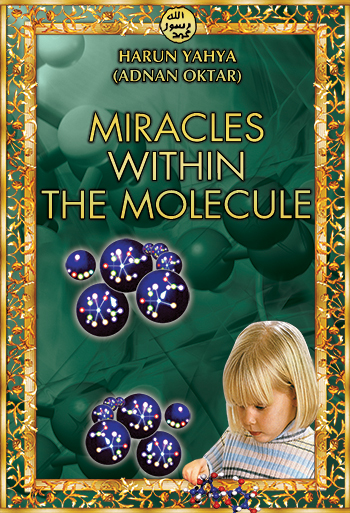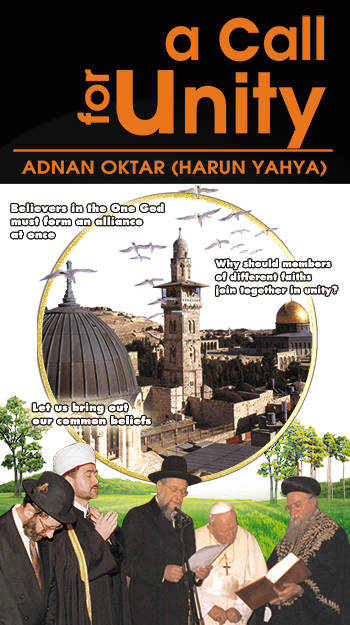Bigotry: The Dark Danger
Urgent call to end Syria's 'silent massacre'
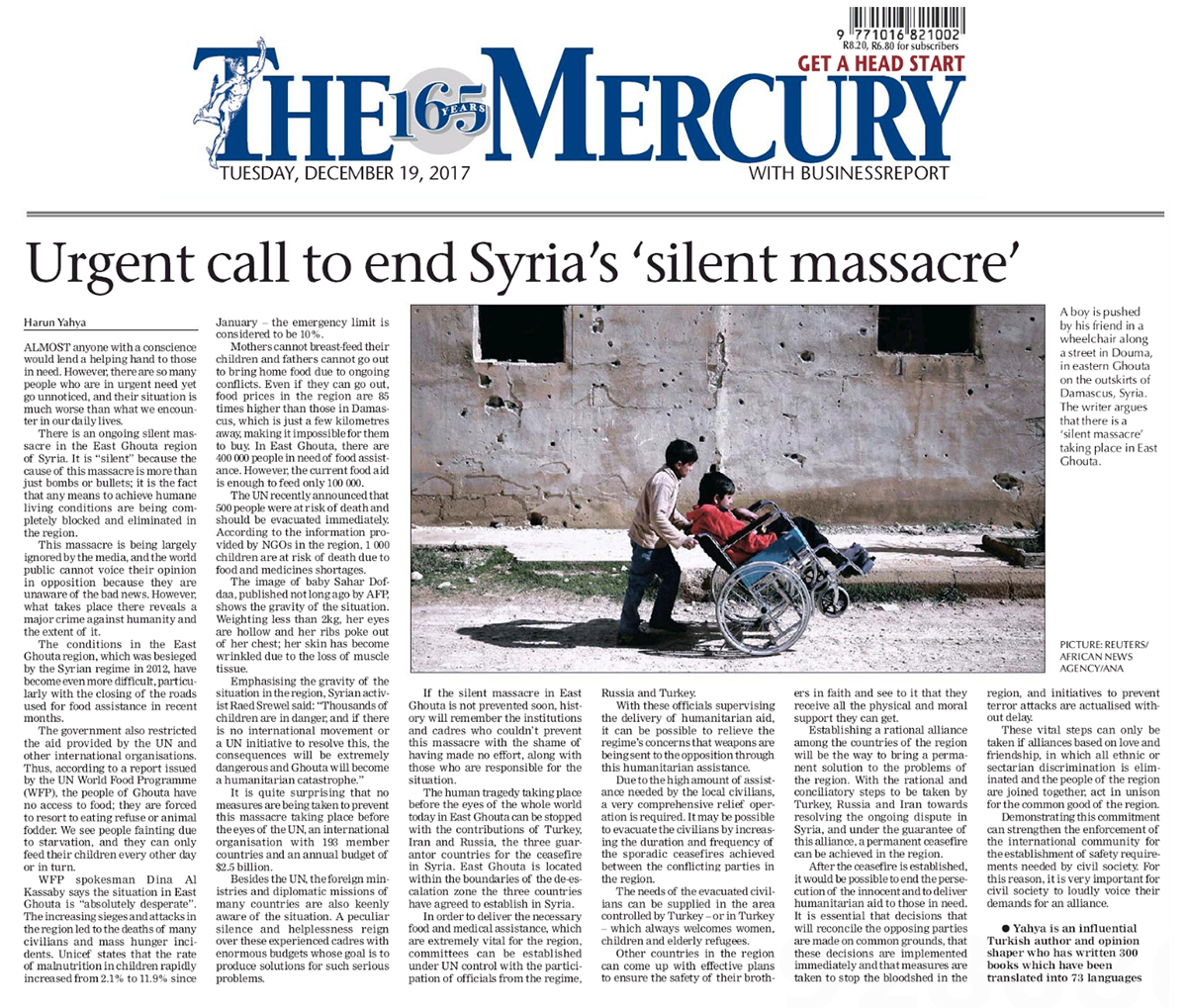
Almost anyone with a conscience would lend a helping hand to those in need. However, there are so many people who are in urgent need, yet go unnoticed, and their situation is much worse than what we encounter in our daily lives.
There is an ongoing silent massacre in the East Ghouta region of Syria. It is ‘silent’ because the cause of this massacre is more than just bombs or bullets; it is the fact that any means to achieve humane living conditions are being completely blocked and eliminated in the region. This massacre is being largely ignored by the media and for this reason the world public cannot voice their opinion in opposition, because they are unaware of the bad news. However, what takes places there reveals a major crime against humanity and the extent of it.
The conditions in the East Ghouta region, which was besieged by the Syrian regime in 2012, have become even more difficult, particularly with the closing of the roads used for food assistance in recent months. The government also restricted the aid provided by the UN and other international organizations. Thus, according to a report issued by the UN World Food Program (WFP), the people of Ghouta have no access to food; they are forced to resort to eating garbage or animal fodder. We see people fainting due to starvation and they can only feed their children every other day or in turn.
WFP spokesman Dina Al Kassaby says the situation in East Ghouta is "absolutely desperate." The increasing sieges and attacks in the region led to the deaths of many civilians and mass hunger incidents. UNICEF states that the rate of malnutrition in children rapidly increased from 2.1% to 11.9% since January; the emergency limit is considered to be 10%. Mothers cannot breastfeed their children and fathers cannot go out to bring home food due to ongoing conflicts. Even if they can go out, food prices in the region are 85 times higher than those in Damascus, which is just a few kilometers away, making it impossible for them to buy. In East Ghouta, there are 400,000 people in need of food assistance; however the current food aid is enough to feed only 100,000 people.[1]
The UN recently announced that 500 people are at risk of death and must be evacuated immediately. According to the information provided by NGO’s in the region, 1,000 children are at risk of death due to food and medicines shortages. The UN special adviser Jan Egeland describes this situation as a "total disaster." The image of baby Sahar Dofdaa, published not long ago by AFP, shows the gravity of the situation. Weighting less than two kilograms, her eyes are hollow and her ribs poke out of her chest; her skin has become wrinkled due to the loss of muscle tissue. Syrian activist Raed Srewel says, “Thousands of children are in danger, and if there is no international movement or a UN initiative to resolve this, the consequences will be extremely dangerous and Ghouta will become a humanitarian catastrophe,” emphasizing the gravity of the situation in the region.[2]
It is quite surprising that there are no measures taken to prevent this massacre that is occuring before the eyes of the UN, an international organization with 193 member countries and with annual budget of 2.5 billion dollars. Besides the UN, the foreign ministries and diplomatic missions of many countries are also keenly aware of the situation. A peculiar silence and helplessness reign over these experienced and crowded cadres with enormous budgets whose goal is to produce solutions for such serious problems. If the silent massacre in East Ghouta is not prevented soon, history will remember the institutions and cadres who couldn’t prevent this massacre with the shame of having made no effort, along with those who are responsible for the situation.
The human tragedy that takes place before the eyes of the whole world today in East Ghouta can be stopped with the contributions of Turkey, Iran and Russia, the three guarantor countries for the ceasefire in Syria. East Ghouta is located within the boundaries of the de-escalation zone the three countries have agreed to establish in Syria. In order to deliver the necessary food and medical assistance, which are extremely vital for the region, committees can be established under UN control with the participation of officials from the regime, Russia and Turkey. With these officials supervising the delivery of humanitarian aid, it can be possible to relieve the regime's concerns that weapons are being sent to the opposition through this humanitarian assistance.
Due to the high amount of assistance needed by the local civilians, a very comprehensive relief operation is required. It may be possible to evacuate the civilians by increasing the duration and frequency of the sporadic ceasefires achieved between the conflicting parties in the region. The needs of the evacuated civilians can be supplied in the area controlled by Turkey - or in Turkey - which always welcomes women, children and elderly refugees. Other countries in the region can come up with effective plans to ensure the safety of their brothers in faith and see to it that they receive all the physical and moral support they can get.
Establishing a rational alliance among the countries of the region will be the way to bring a permanent solution to the problems of the region. With the rational and conciliatory steps to be taken by Turkey, Russia and Iran towards resolving the ongoing dispute in Syria, and under the guarantee of this alliance, a permanent ceasefire can be achieved in the region. After the ceasefire is established, it would be possible to end the persecution of the innocent and to deliver humanitarian aid to those in need. It is essential that decisions that will reconcile the opposing parties are made on common grounds, that these decisions are implemented immediately and that measures are taken to stop the bloodshed in the region, and initiatives to prevent terror attacks are actualized without delay. These vital steps can only be taken if alliances based on love and friendship, in which all ethnic or sectarian discrimination is eliminated and the people of the region are joined together, act in unison for the common good of the region. Demonstrating this commitment can strengthen the enforcement of the international community for the establishment of safety requirements needed by civil society. For this reason, it is very important for the public in Muslim countries to loudly voice their demands for an alliance.
[1] Middle Esat Eye, Child malnutrition hits 'all-time high' in East Ghouta, says UN, November 30 2017, http://www.middleeasteye.net/news/child-malnutrition-hits-all-time-high-east-ghouta-says-un-506304877
[2] Kareem Shaheen, Syria: shocking images of starving baby reveal impact of food crisis, The Guardian October 23 2017, https://www.theguardian.com/world/2017/oct/23/syria-shocking-images-of-starving-baby-reveal-impact-of-food-crisis
Adnan Oktar's piece in The Mercury (South Africa) & Al Bilad (Canada)
